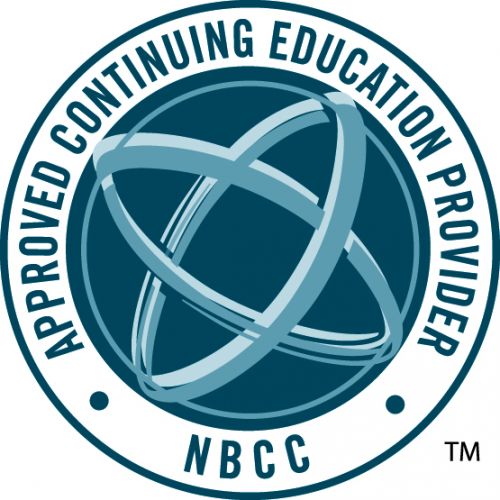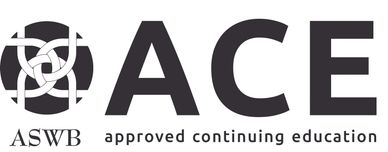Spirituality & Aging
Ligia M. Houben, MA, CT, CG-C
$29.00 Original price was: $29.00.$14.50Current price is: $14.50.
 Introductory
Introductory
 Online
Online
Course Abstract
Spirituality & Aging is a 2-hour online continuing education (CE/CEU) course that offers an insight into how spirituality influences the lives of elders in our care.
Spirituality and religious beliefs provide coping mechanisms for issues related to aging and have been proven to have a protective factor. Elders with higher levels of spirituality have better mental and physical health, and are less anxious about aging.
This course provides an accessible tool kit for healthcare professionals to use in attending to the spiritual well-being – as well as the physical, social, and emotional needs – of elders in their care. Included are ready-to-use exercises and techniques for promoting spiritual self-awareness in elders, as well as vignettes from the author’s own years of experience. The author makes a clear distinction between spirituality and religion, emphasizing the importance of helping elders come to terms with the numerous losses they experience in later life. Among the tools described are the spiritual inventory, an assessment of spiritual needs, the value of forgiveness and legacy, a discussion of spiritual deterrents, the importance of cultural sensitivity, how to promote spiritual growth in a group setting, and compassion fatigue among healthcare professionals.
Course #21-28 | 2019 | 34 pages | 15 posttest questions
Learning Objectives
- Summarize the differences between an “elder” and an “elderly” adult
- List three spiritual assessment tools
- Describe six spiritual needs of central importance when working with elders
- Name three spiritual deterrents and three spiritual tools
- Identify three activities to enhance spirituality when working with elders
- Specify three risk factors for compassion fatigue in healthcare professionals
Course Directions
This online course provides instant access to the course materials (PDF download) and CE test. The course is text-based (reading) and the CE test is open-book (you can print the test to mark your answers on it while reading the course document).
Successful completion of this course involves passing an online test (80% required, 3 chances to take) and we ask that you also complete a brief course evaluation.
About the Author(s)
Ligia M. Houben, MA, CT, CG-C : Find out More
Ligia M. Houben, MA, CT, CG-C, has a background of counseling in areas such as grief, loss, healing, and addiction. She has a Master of Arts Degree in Religious Studies and is certified in gerontology, as a grief, loss, and healing counselor, and as an addiction specialist. She is a training provider for assisted living facilities, specializing in Alzheimer’s disease. She has affiliations with Barry University’s Older Adults Opportunity Center, the University of Miami’s Lifelong Learning Center, Florida International University’s Center on Aging, Vitas Hospice, and various other centers in South Florida where she has worked and presented.
Disclosure
Financial: No relevant financial relationships exist.
Nonfinancial: No relevant nonfinancial relationships exist.
CE Information
Counseling

Professional Development Resources (PDR) has been approved by the National Board for Certified Counselors (NBCC) as an Approved Continuing Education Provider, ACEP No. 5590. Programs that do not qualify for NBCC credit are clearly identified. PDR is solely responsible for all aspects of the programs.
Professional Development Resources is CE Broker compliant (#50-1635 - all courses are reported within two business days of completion). Professional Development Resources, Inc. is recognized by the New York State Education Department’s State Board for Mental Health Practitioners as an approved provider of continuing education for licensed mental health counselors (#MHC-0135 - Note: New York counselors will receive 2 continuing education credits for completing this self-study course).
Marriage and Family Therapy

Professional Development Resources is approved by the American Psychological Association (APA) to sponsor continuing education for psychologists. Professional Development Resources maintains responsibility for this program and its content. Professional Development Resources is also approved by the National Board of Certified Counselors (NBCC ACEP #5590); the Association of Social Work Boards (ASWB #1046, ACE Program); the New York State Education Department's State Board for Mental Health Practitioners as an approved provider of continuing education for licensed marriage and family therapists (#MFT-0100 - Note: New York MFTs will receive 2 continuing education credit(s) for completing this self-study course); the Texas Board of Examiners of Marriage and Family Therapists (#114); and is CE Broker compliant (#50-1635 - all courses are reported within two business days of completion).
Nutrition and Dietetics
Professional Development Resources is a CPE Accredited Provider with the Commission on Dietetic Registration (CDR #PR001). CPE accreditation does not constitute endorsement by CDR of provider programs or materials. Feedback for this activity can be sent directly to CDR. Professional Development Resources is also a provider with the Florida Council of Dietetics and Nutrition (#50-1635) and is CE Broker compliant (#50-1635 - all courses are reported within two business days of completion).
Download CDR's Critical Thinking Tool - CDR credentialed practitioners must complete and save this form and the certificate of completion should they ever be audited. Failure to include both certificate and completed tool will result in a failed audit and loss of CPE credit. Feedback about the quality of the activity can be sent directly to CDR: [email protected]
Psychology

Professional Development Resources is approved by the American Psychological Association (APA) to sponsor continuing education for psychologists. Professional Development Resources maintains responsibility for this program and its content.
Professional Development Resources is CE Broker compliant (#50-1635 - all courses are reported within two business days of completion). Professional Development Resources, Inc. is recognized by the New York State Education Department’s State Board for Psychology as an approved provider of continuing education for licensed psychologists (#PSY-0145).
School Psychology

Professional Development Resources is approved by the American Psychological Association (APA) to sponsor continuing education for psychologists. Professional Development Resources maintains responsibility for this program and its content.
Professional Development Resources is CE Broker compliant (#50-1635 - all courses are reported within two business days of completion). Professional Development Resources, Inc. is recognized by the New York State Education Department’s State Board for Psychology as an approved provider of continuing education for licensed psychologists (#PSY-0145).
Social Work

Professional Development Resources, #1046, is approved as an ACE provider to offer social work continuing education by the Association of Social Work Boards (ASWB) Approved Continuing Education (ACE) program. Regulatory boards are the final authority on courses accepted for continuing education credit. ACE provider approval period: 6/12/2025 - 6/12/2028. Social workers completing this course receive 2 clinical continuing education credits. ACE format: Reading-based asynchronous distance learning.
Professional Development Resources is CE Broker compliant (#50-1635 - all courses are reported within two business days of completion). Professional Development Resources, Inc. is recognized by the New York State Education Department's State Board for Social Work as an approved provider of continuing education for licensed social workers (#SW-0664 - Note: New York social workers will receive 2 continuing education credit(s) for completing this self-study course). Professional Development Resources is also approved by the Texas State Board of Social Worker Examiners (#5678).
Teaching
Professional Development Resources is approved to sponsor continuing education by the American Psychological Association (APA); the National Board of Certified Counselors (NBCC ACEP #5590); the Association of Social Work Boards (ASWB Provider #1046, ACE Program); the American Occupational Therapy Association (AOTA Provider #3159); the Commission on Dietetic Registration (CDR Provider #PR001); the Alabama State Board of Occupational Therapy; the Florida Boards of Social Work, Mental Health Counseling and Marriage and Family Therapy (#BAP346), Psychology & School Psychology (#50-1635), Dietetics & Nutrition (#50-1635), and Occupational Therapy Practice (#34); the Ohio Counselor, Social Worker & MFT Board (#RCST100501); the South Carolina Board of Professional Counselors & MFTs (#193); and the Texas Board of Examiners of Marriage & Family Therapists (#114) and State Board of Social Worker Examiners (#5678).
Customer Testimonials
I am the primary caretaker for my mother. I gleaned a lot of helpful information from this course. Thank you.
As an older psychotherapist with some older clients I found the course to be both professionally and personally satisfying.
As a psychologist and spiritual director, this was a very helpful course.
I am teaching yoga in an assisted living facility among other things, and this is such a great help with this population.
Great course. Very timely and critical.
More Testimonials
What a great way to get into the education credits! I enjoyed taking the course!
I greatly appreciate the ease of using the PDR website.
The information is very useful for what I do. I'm an LCSW in a community health/mental health setting, and some of my clients are struggling with issues presented in the materials. The interventions will prove to be very useful.
Very useful information presented clearly and including the latest research.
This course put together and gave substance to many of the issues I encounter in my work and life as a getting older myself psychologist. Thank you!
Well done. Excellent job of bringing in current research and assessment tools and questions. Very, very nice job!
A wonderful experience. Your courses are really educative and thorough.
Easy to navigate and very informative.
Great information and great presentation! Excellent course and highly recommended.
Good preparation as I am about to begin as a spiritual care volunteer with hospice. Thank you!
I am an "aging" psychologist so this as most interesting from both sides of the therapeutic relationship.
I really enjoyed this course. It is very relevant to me personally (at age 76!) and to a growing population of wise elders who are so needed at this time. Thank you.
This is a very helpful and timely course, especially with the increasing age of our population.
Thank you so much for this information! It will be useful in my own life as well as in my practice.
Will recommend this course to my colleagues.
Enjoyed the thoroughness of the course and the logical presentation of the material.
I appreciate all the spiritual engagement/assessment tools & see many uses for them in my field. Thank you
The course was well presented in terms of explanations and examples.
Well done! Iinformative, insightful, and I believe I will use this knowledge and the many questions in discussion, even with individuals who had not yet part of the " elderly or elder' population. Thanks!
This was again such useful and topical information, so important to understand if one works with elders. The material was presented in an organized manner and included a great amount of content on the topic. Thank you.
Outstanding course. I learned a great deal and found the experience to be valuable.
I found this course to be amazing. I came to appreciate the aging process form a new point of view.
Appreciated the topic and the practical aspects of the information.
I really enjoyed this course, being a senior. I work in home health and see a lot of seniors, so it is really relevant to my work with most of the patients. Thanks!
A wealth of information - and understanding - on the issues of aging.
Outstanding course. I learned a great deal and found the experience to be valuable.
I found this course professionally and personally relevant and appreciated the clarity and practical tools offered in the course. Thank you
Another good course! Very sensitive empathic author. Thanks, as always.
- ADHD
- Adults
- Alternative Medicine
- Alzheimers & Aging
- Animal-Assisted Therapy
- Autism
- Behavior Therapy
- Child & Adolescent
- Closeout
- Communication
- Couples-Family-Parenting
- Cultural Diversity
- Depression & Anxiety
- Domestic Violence
- Ethics & Risk Management
- Gender Identity
- HIV-AIDS
- Human Trafficking
- Laws & Rules
- Medical Errors
- Mindfulness & Yoga
- National Psychologist
- Nutrition & Fitness
- Psychotherapy
- Sexuality
- Substance Abuse
- Suicide
- Supervision
- Trauma & PTSD





